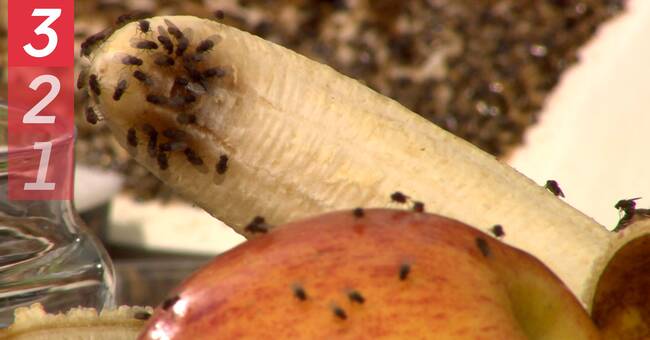A lot of research has been done on the temperatures at which species can no longer survive.
In this study, published in the journal Nature Climate Change, researchers have instead examined the temperature at which species can no longer reproduce.
The researchers exposed 43 different types of banana flies to heat increases.
In almost half, the males became sterile at a lower temperature than that when they can no longer survive.
Males' fertility sensitive to heat
If the earth gets warmer, the insects will have a harder time finding places that are cool enough for them to be able to reproduce, says Rhonda Snook, professor of ecology at Stockholm University and co-author of the study.
- We know that fertility is affected by heat.
A study has been done on people who showed that the production of sperm is affected by having a hot laptop in their lap.
Heat is not a good thing for male fertility, she says.
"Big and underestimated problem"
There are probably more species than the small banana fly where fertility can be threatened.
A study from Lund University published in February shows that the world's largest bird, the ostrich, has problems reproducing when the temperature rises or falls more than five degrees from their ideal temperature.
- Although this study was done on banana flies, because they are easy to examine in a lab environment, we believe that this will be a fairly large and underestimated problem when organisms have to adapt to climate change, says Rhonda Snook.
Want to examine the females
The fact that animals have reduced fertility due to climate change can be a major threat to biodiversity, the researchers say.
And it's not just about an increase in average temperature.
More and longer heat waves, ie what we already see today, can affect the fertility of species, says Rhonda Snook.
- Investigating how species recover is the next step in our research.
We also want to identify which genes cause different species to be affected differently, and to investigate how the females are affected, she says.

